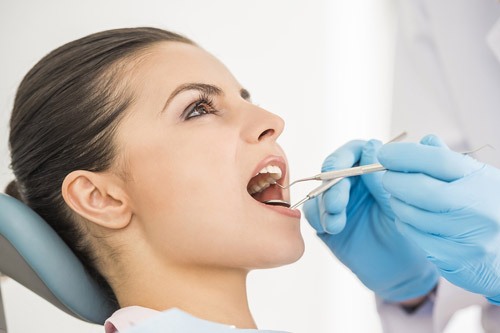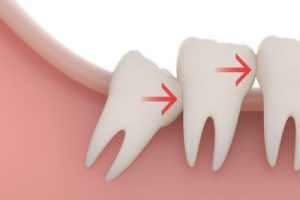Wisdom Teeth Removal

Our experienced dentists can help you with all wisdom teeth removal treatments in our clinic in Joondalup, Perth.
Wisdom teeth often develop at the back of the gums and are the last teeth to come through. Most people have four of these wisdom teeth, one in every corner.
Wisdom teeth more often than not come through the gums around your late teenage years or mid-twenties. At this point, the other grown-up teeth are typically set up, so there is generally no room enough in the mouth for these teeth to develop appropriately.
As a result of the absence of space, wisdom teeth at times rise at an edge or stall out and just halfway rise. Wisdom teeth that develop through like this are referred to as an impacted tooth or teeth.
When to See a Dentist
You ought to make an arrangement to see your dentist (experienced in wisdom teeth removal) in case you are encountering serious pain or uneasiness from the wisdom teeth. The dentist will organise and x-ray of your jaw, examine your teeth and tell you whether the wisdom teeth needs to be extracted.
Reasons for Wisdom Teeth Removal
 Wisdom teeth should not be extracted if there is enough room in your jaw, room enough to clean it and are not causing any issues such as a fever or infection.
Wisdom teeth should not be extracted if there is enough room in your jaw, room enough to clean it and are not causing any issues such as a fever or infection.
Once in a while, the wisdom teeth have caused an infection of the gums or have not completely come through to the gum surface may bring about some issues. Food particles and microorganisms can get caught around the wisdom teeth edges, bringing about a development of plaque, which can prompt:
- Tooth rot
Tooth rot occurs when plaque starts to separate the surface of the tooth. At the point when tooth rot turns out to be more of an issue is when it leaves gaps in the tooth, which can affect the nearby teeth and the surrounding bone too.
- Gum Disease
This happens when there is a discharge of bacteria that chafe your gums, causing redness, swollen and may be excruciatingly painful. Gum disease can affect the nearby teeth and also the bone surrounding the teeth.
- Soreness
When discharge gathers in the wisdom teeth and the encompassing tissue because of a bacterial disease.
- Pericoronitis
When the plaque causes a disease of the delicate tissue that surrounds the tooth.
- Fever
Wisdom tooth sometimes may cause a fever.
- Benign Growths and Cysts
Once in a while, the wisdom tooth that has not broken through to the gum, it builds up a liquid filled swelling.
Some of these issues can be treated, for example, using anti-infection agents and sterile mouthwash. But in most cases, a wisdom teeth removal will be recommended.
Removal of the Wisdom Teeth
Most dentists will provide a form of sedation to numb the area around the tooth. Some dentist will recommend general anaesthetic if you have to pull out more than two wisdom teeth at one go or if there are complications in the wisdom teeth extraction. Sometimes the dentist may create a small incision in your gums so that the tooth may be cut into little pieces to make it easier to remove. The time it takes to remove the wisdom tooth will not be the same for everyone. Some situations take a couple of minutes and others can take twenty minutes or more.
After the wisdom tooth or teeth have been removed, you may get some swelling near the wisdom tooth area and outside of your mouth. The dentist will also provide some painkillers for pain relief. Bleeding around the wisdom tooth area is also common and the dentist will usually provide your some gauze to bite down on the bleeding area. This normally lasts around three days from the procedure or up to two weeks. If you do find that the pain and swelling do not stop, please book an appointment with your dentist to assist with the issues.
To find out more, book an appointment here or Call (08) 9404 9520
Ask about our Payment Plans
Any surgical or invasive procedure carries risks. Before proceeding, we encourage you to discuss these matters with an appropriately qualified health practitioner.


